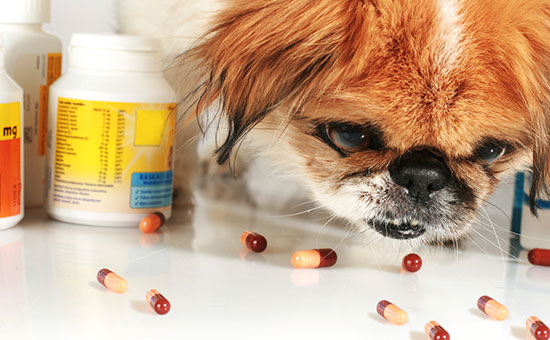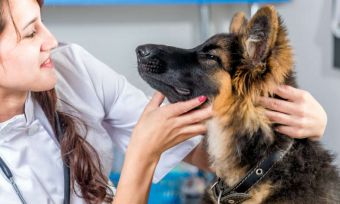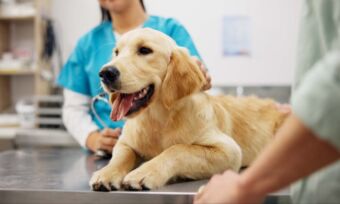Pet Insurance Australia has revealed it received almost 500 claims in 2016 for ibuprofen toxicity and paracetamol poisoning in cats and dogs.
During the same time period, there were an additional 1,200 toxicity insurance claims where the drug was unknown.
There’s a strong chance that many of these were also the result of companion pets being poisoned by consuming human drugs.
Extrapolating on these insurance claim figures, Pet Insurance Australia (PIA) spokesperson Nadia Crighton said there are probably 10,000 uninsured companion animals who fall victim to poisoning from human drugs every year.
“This is 100% preventable and the general public needs to be aware that unreliable storage and self-medicating can lead to serious complications with their beloved animal,” said Crighton.
It’s a common problem, with human drug ingestion taking up almost 50% of all pet poisoning cases, as estimated by Pet Poison Helpline in the United States and Canada.
“Pets should not be given any over-the-counter medication developed for humans; it can cause horrendous consequences and even death,” Crighton said.
“These drugs are not designed for pets and can lead to various problems.
“You should only give your pet drugs that have been specifically prescribed by a trained veterinarian. It is also important to follow the instructions and to not over-medicate your beloved animal.”
Of course, it’s common sense for owners to know not give human medications to their pets, but preventing curious pets from finding and ingesting pills is more of a challenge.
“Just like with children, all medication should be kept out of reach of your curious pet,” Crighton suggests.
“This is also important with medication specially designed for animals, such as worm treatments and pain relief.
“Many are chewable and tainted with flavours making them very enticing to your cat or dog.”
Storing medication in a locked box at a pet-proof location is advised.
Since pets metabolise medicine in a vastly different manner to humans, the Pet Poison Helpline emphasises that just because a medication can be safe for children, it does not mean it is safe for animals.
Even a seemingly tame over-the-counter or herbal medication may cause serious poisoning in pets.
Pet poisoning prevention tips
Dr Justine Lee and Dr Ahna Brutlag at Pet Poison Helpline share the following tips:
- Never leave loose pills in a plastic Ziploc bag, as they are too easy to chew into
- If you place your medication in a weekly pill container, be sure to store the container in a cabinet out of reach of your pets.
- Never keep your medications near your pets, as pet owners may inadvertently give their own medication to their pets.
- Hang your bag up to stop inquisitive pets from exploring the contents.
Source: petpoisonhelpline
If your pet has consumed a medication designed for humans, immediately ring your veterinarian or your local RSPCA.







Share this article